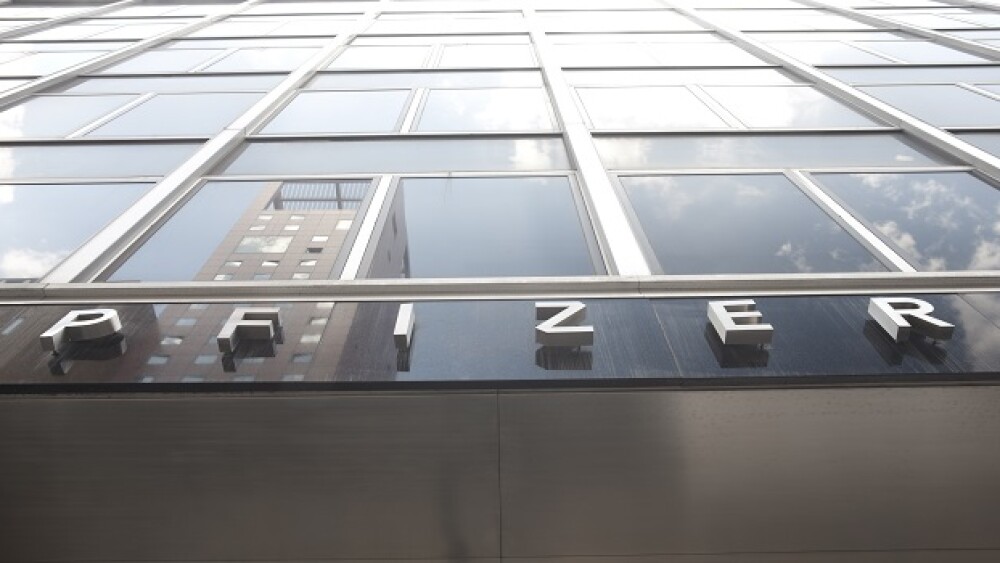Pfizer reported its second-quarter financials, with adjusted earnings per share coming in at $0.81, exceeding the consensus forecast of $0.74, up 20.9 percent from the same period in 2017.
Pfizer reported its second-quarter financials, with adjusted earnings per share coming in at $0.81, exceeding the consensus forecast of $0.74, up 20.9 percent from the same period in 2017. The company’s revenues were $13.47 billion, up 4.36 percent in this quarter from the second quarter last year. It also beat the consensus projection of $13.33 billion.
“We reported solid second-quarter 2018 financial results, with total company revenues up two percent operationally, driven by the continued growth of key brands such as Eliquis, Ibrance and Xeljanz, as well as biosimilars and emerging markets,” stated Ian Read, Pfizer chairman and chief executive officer. “The performance of these growth drivers was partially offset by product losses of exclusivity, a decline in legacy Established Products in developed markets and ongoing legacy Hospira supply shortages.”
Eliquis, Ibrance and Xeljanz are all in the company’s Innovative Health division, which grew five percent operationally in the second quarter. Those three pushed the division’s growth globally, while Prevnar 13/Prevenar 13 grew in the U.S. and emerging markets, and Xtandi grew in the U.S. Operational revenue growth for Eliquis was 42 percent, for Ibrance was 19 percent, 37 percent for Xeljanz and 21 percent for Xtandi. Prevnar 13/Prevenar 13 revenues grew seven percent in the quarter.
Essential Health (EH), which is primarily Legacy Established Products and Sterile Injectable Pharmaceuticals, dropped four percent operationally. There was a 12 percent drop in the Legacy Established Products and a 17 percent decline in the Sterile Injectable Pharmaceuticals portfolio. There was also an 11 percent drop in the Peri-LOE Products in developed markets. These losses were partially offset by a 10 percent operational growth in emerging markets across all portfolios and a 44 percent operational growth from Biosimilars, mostly Inflectra in the U.S. and in Europe.
The company has updated its financials for the year, projecting $53 to $55 billion compared to an earlier forecast of $53.5 to $55.5 billion. Its forecast for earnings per share changed from between $2.95 and $3.05 from $2.90 to $3. This also reflects $6.1 billion of share repurchases that it already completed this year.
Earlier this month, the company’s Read had a discussion with President Donald Trump over a planned increase in prices of around 40 drugs. It has since indicated it would defer those price hikes no more than six months.
“I am pleased with our results over the first half of 2018, which keeps us on track to deliver a solid financial performance this year,” said Frank D’Amelio, executive vice president, Business Operations and chief financial officer, in a statement. “We are raising our 2018 guidance range for Adjusted diluted EPS, which at the midpoint implies 13 percent growth compared to last year. Additionally, in the first half of 2018, we returned $10.1 billion directly to shareholders through dividends and share repurchases, demonstrating our continued commitment to returning capital to our shareholders.”
In July of this year, Pfizer indicated it would restructure the company into three businesses, including a science-based Innovative Medicines group, an off-patent branded and generic Established Medicines group, and a Consumer Healthcare business, “for which Pfizer continues to evaluate strategic alternatives, with a decision expected in 2018.”





